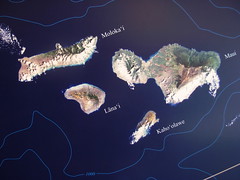 Every state has their own Medicaid program. Most of the states officially call it Medicaid, but some change it to a name that is more individuated. In Hawaii, the Medicaid program is called Med-Quest. Here is some basic information about the Med-Quest program.
Every state has their own Medicaid program. Most of the states officially call it Medicaid, but some change it to a name that is more individuated. In Hawaii, the Medicaid program is called Med-Quest. Here is some basic information about the Med-Quest program.
Medicaid is a public, or government run, health insurance program. It is designed to provide health insurance coverage for individuals and families who are low income and who cannot afford to purchase a health insurance plan from a private insurance company. Medicaid is funded, in part, by the federal government. It is also funded, in part, by the government of an individual state.
In Hawaii, the Medicaid program is administered by the State of Hawaii Department of Human Services. Instead of calling it Medicaid, the state officially calls the program Med-Quest.
In order to qualify for Medicaid in Hawaii, a person must live in Hawaii. The person must also be a United States citizen or be in the United States legally. Some of the parts of the Medicaid program have age requirements that must be met. There may also be medical criteria that a person must meet. Women who are pregnant must have their pregnancy medically certified in order to be eligible.
There are income requirements that must be met. A Medicaid worker will verify the income and resources a person has when he or she applies for Medicaid. Some of the income that could be considered include: wages and tips, dividends and interest, unemployment insurance benefits, Social Security benefits, child support payments, alimony payments, pensions, retirement pensions, and Veterans benefits.
In 2012, the various medical assistance programs were consolidated into three benefits packages. The three are called QUEST Expanded Access, QUEST- Keiki, and QUEST Adult.
People who were enrolled in QUEST Expanded Access at the time the consolidation occurred will continue to receive the same benefits packages as what they were already receiving. The exception is that there will be limitations on chore services and non-emergency ground transportation.
People who were enrolled in QUEST Keiki program are age 20 and younger. It provides almost the same benefits packages as the previous QUEST program for people who were under age 20. The difference is that the program will have reductions in coverage for non-emergency transportation services.
The QUEST Adult program is the new name for a consolidation of other programs. QUEST, QUEST-ACE and QUEST-Net have been rolled into the new QUEST-Adult program. People enrolled in the programs that got combined will all receive QUEST-Adult benefits.
Image by J Brew on Flickr

